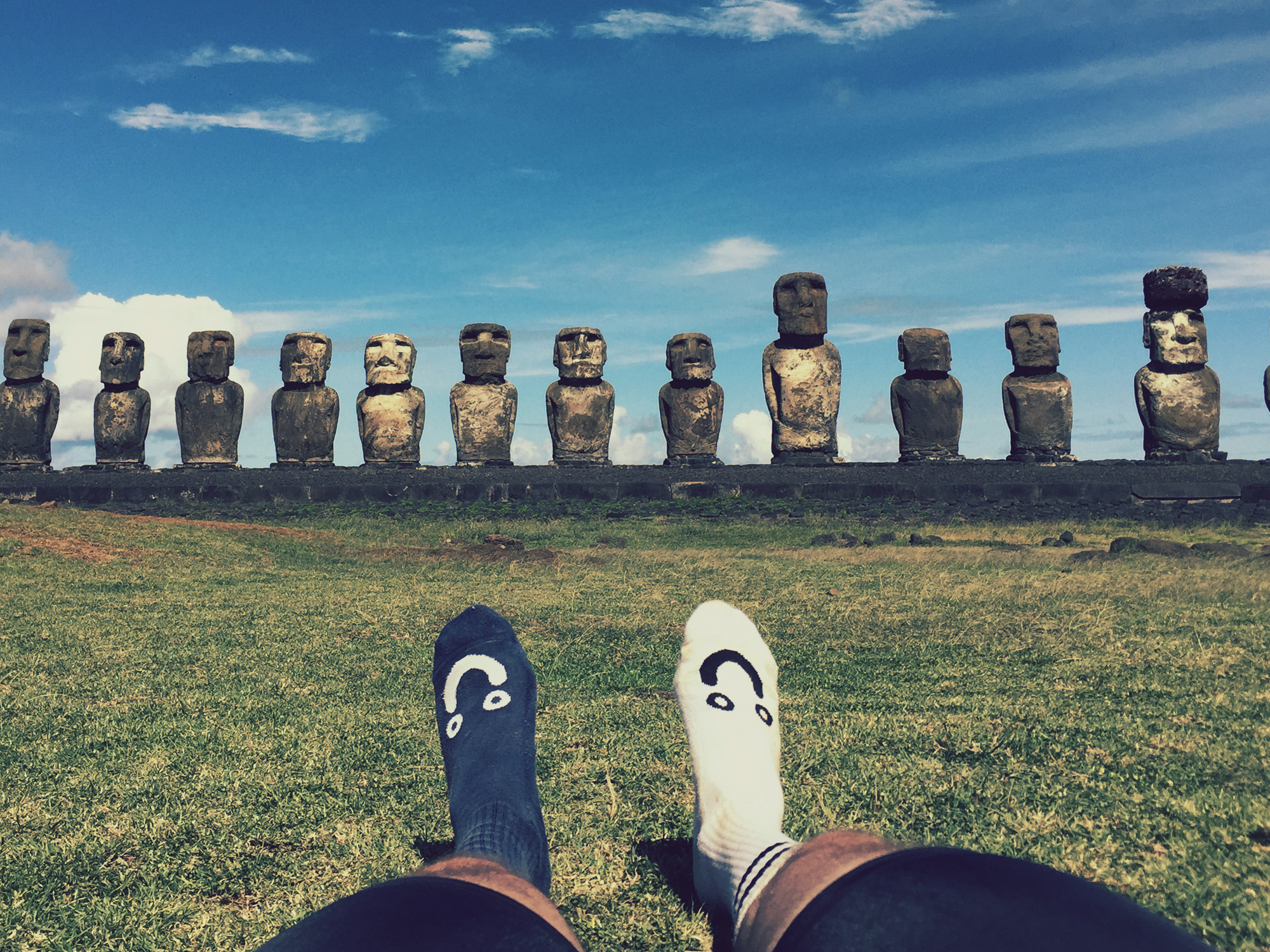Get Easy Health Digest™ in your inbox and don’t miss a thing when you subscribe today. Plus, get the free bonus report, Mother Nature’s Tips, Tricks and Remedies for Cholesterol, Blood Pressure & Blood Sugar as my way of saying welcome to the community!
This compound from Easter Island’s soil may cure cancer and Alzheimer’s one day

Most of modern medicine’s “wonder drugs” don’t start in a lab. They start in a bug. Or a bush. Or a berry. Or in some cases, a pile of dirt on Easter Island…
Back in the 1960s, Canadian scientists set off to Easter Island to search for natural compounds that could fight microbes. But they found something even more amazing…
A compound in Easter Island soil samples that could fight fungi and suppress the immune system. Now, fighting fungi is clearly good. But suppressing the immune system? Why would we want that?
Because there are times when our immune system isn’t our friend. Like when it attacks organ transplants. Or goes after our healthy tissue in autoimmune diseases. Or goes haywire in cancer.
In fact, that compound they found over 50 years ago got turned into a powerful drug called rapamycin (from the term Rapa Nui, the native name for Easter Island) based solely on its ability to suppress the immune system. This drug is used to prevent organ transplant rejection, as well as a few other serious conditions like the progressive lung disease Lymphangioleiomyomatosis.
But by only using rapamycin as an immune suppressor for a few serious conditions, we may be leaving a bunch of its best benefits on the table…
In fact, researchers are currently conducting clinical trials to see if it can treat two of the most devastating health conditions of our time — cancer and Alzheimer’s.
Why rapamycin has Alzheimer’s and cancer-fighting potential
Researchers from the University of Michigan in Ann Arbor and the Zhejiang University of Technology in China think they found a new and exciting use for rapamycin.
They’re in the middle of a clinical trial. And so far, they’ve found that rapamycin can target a protein in the body called transient receptor potential mucolipin 1 (TRPML1). This protein speeds up cell recycling, so cell waste and faulty proteins don’t muck up the works in your brain.
Since the backlog of faulty proteins is one of the mechanisms of aging and brain degenerative diseases like Alzheimer’s and Parkinson’s, it would be very good news if rapamycin could target this protein.
But the bigger, better benefits of rapamycin don’t stop there…
There’s also a possibility that rapamycin could be used to treat cancer. In fact, the FDA has approved rapamycin byproducts called rapalogs for clinical trials that test their effect on cancer cells.
Researchers believe rapamycin has anti-cancer potential because it blocks a protein called mTOR. By blocking mTOR, rapamycin stops cell growth. And as you know, cancer is a case of sell growth gone awry.
In addition to these huge benefits on the horizon, studies in mammals, flies and other creatures show that rapamycin increases lifespan. Just the cherry on top, I suppose.
How you can prevent cancer, Alzheimer’s and other diseases right now
Rapamycin could be the next big-deal drug if more studies confirm suspicions that it can fight aging, neurodegeneration, and cancer. But it will be a while before everyday people like you and me can benefit from these discoveries.
What can we do in the meantime to keep ourselves safe from Alzheimer’s and cancer?
Eat well and exercise. I know that sounds simplistic but it’s the best thing you can do to prevent these two (and most other) diseases.
Related: Can Alzheimer’s dementia be reversed?
Diet seems to be the biggest factor in cancer (besides tobacco use). And the truth is, you don’t have to adopt some extreme diet to reduce your risk. Just do two things:
- Eat a diet that helps you maintain a healthy BMI. That means keeping an eye on your daily calorie intake. Women need an average of 2,000 calories per day to maintain their current weight or 1,500 calories to lose a pound of weight per week. Men need an average of 2,500 calories to maintain their current weight or 2,000 to lose a pound of weight per week.
- Eat less red and processed meats and more fruits and vegetables.
That’s easy enough, right?
When it comes to Alzheimer’s, exercise seems to be one of the most reliable forms of prevention. Studies show exercise can reduce your odds of developing Alzheimer’s or even slow the progression if you already have it. How much exercise do you need?
About 30 minutes of moderate to vigorous aerobic exercise, three to four days per week should do the trick. So, buy a bag of carrot sticks, sign up for some exercise classes and use your time wisely while you wait for the next “wonder drug” to hit the market.
Editor’s note: Discover how to live a cancer prevention lifestyle — using foods, vitamins, minerals and herbs — as well as little-known therapies allowed in other countries but denied to you by American mainstream medicine. Click here to discover Surviving Cancer! A Comprehensive Guide to Understanding the Causes, Treatments and Big Business Behind Medicine’s Most Frightening Diagnosis!
Sources:
- Scientists discover anti-aging potential in old drug — Medical News Today
- Rapamycin directly activates lysosomal mucolipin TRP channels independent of mTOR — PLOS Biology
- mTOR Signaling in Growth, Metabolism, and Disease — Cell
- What can you do to avoid Alzheimer’s disease? — Harvard Health
- The 10 commandments of cancer prevention — Harvard Health
- How Many Calories Should You Eat Per Day to Lose Weight? — Healthline












